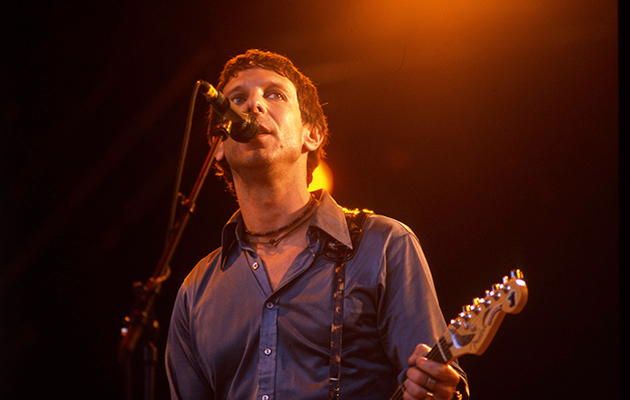DAVE FRIDMANN: At Tarbox, we finalised it and mixed it, and came up with all the final arrangement portions, but a tremendous amount of work had already been done when they came into the studio.
SNYDER: Much of “Opus 40” was re-recorded there. What remains for sure are Levon’s drums, Amy and Marie’s singing and whistling, and my part on the Hammond B3. The organ we kept from the first session, even though the solo I played on the B3 was a little clunky. I hit at least one wrong note but I insisted on keeping it ’cause that was the one I played while Levon was actually playing. Of the new additions, the harmonies during the choruses really made the song pop. I’m pretty sure it’s Grasshopper who’s hitting those high notes, which for me lives on as an unintended tribute to Rick Danko.
FRIDMANN: I don’t believe any actual string players were harmed in the making of that song, I believe that’s all samples and synthesisers. There was a confluence of our technical abilities, having a stable environment to work in, and having the ability to get to where we wanted to be in the first place. That combined with the fact I was simultaneously making The Soft Bulletin with The Flaming Lips and there was obviously a lot of cross-pollination going on. We were all learning what some of the capabilities of that technology was at that time, which was awesome.
DONAHUE: I remember thanking Dave Fridmann at the end of Deserter’s Songs, and saying “Thank you, this is probably our last hoorah together.” What took us by surprise was that people didn’t see the album coming. Maybe there weren’t oboes on See You On The Other Side, but there were other orchestrations, and more classical instrumentation, and on Deserter’s Songs we just fully dove in. But even when we handed it in [to the label], no-one said anything. It was just quiet. It didn’t occur to me that it would make waves like it did. All of a sudden we were being asked to do world tours. We didn’t even have guitar amps. I had sold all my guitars for heroin. We had no infrastructure, there was no management, there was nothing. It took a lot of soul-searching to even begin on how to piece this back together.
GRASSHOPPER: It really freaked us out. We were in London, in Sainbury’s, and all of a sudden we hear it on the loud speakers in the grocery store. We’d be in taxis and you’d hear it on the radio. We started to get stalkers that would follow us to the hotels and stuff, and Jonathan and I had to book under different names because you’d have people knocking at 3am on the hotel door. “Where’s Opus 40?” It got really crazy for a while… we played two nights at Shepherd’s Bush a few years later, and one night both Ryan Adams and Bryan Adams were on the guestlist. We thought, ‘Wow, that’s pretty cool.’
DONAHUE: I live on top of a mountain overlooking Woodstock now, and Grasshopper lives in a small town that’s nearby. We’re releasing a new album, our first one in seven years, and people say, “What took you so long?” We’re living in the mountains, people. Time goes differently here. It’s a lot like being an astronaut, you go up in space, you come back down and 30 years have passed on earth. It’s like that. Seven years to me is like seven months, it just goes by differently.



